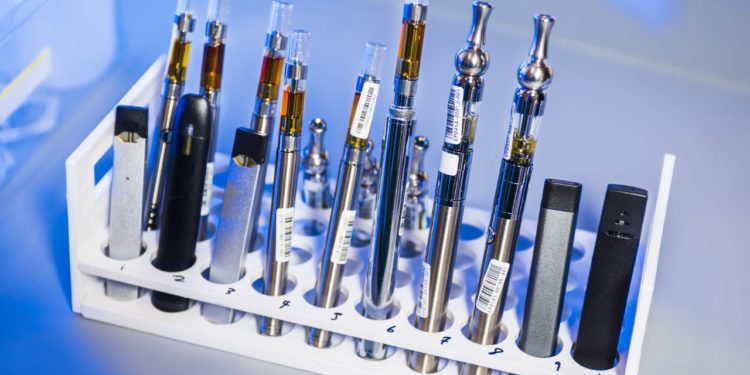According to the study “Investigation on the antibacterial activity of electronic cigarette liquids (ECLs): a proof of concept study” lead by CoEHAR of the University of Catania and recently published on Current Pharmaceutical Biotechnology, the e-liquids used in electronic cigarettes have antibacterial properties effective on different pathogens.
In particular, Propylene glycol (PG) and vegetable glycerol (VG) have proven to be extremely efficient as bactericides. PG is a compound used mainly to solubilize flavours and nicotine while VG to increase the density of the aerosol produced.
“Investigation confirms what scientists long-known on effects of PG and VG, and their antimicrobial effects. Vaporised PG was already used over 50 years ago as a disinfectant in healthcare environments while VG is still used today as an antibacterial in many food ingredients and pharmacological preparations” reveals Massimo Caruso, author of the study and former coordinator of Replica, a CoHEAR’s projects aims to replicate the studies conducted on the electronic cigarette in a completely independent way.
“The study– continues Caruso – have shown that, even in their liquid form, these compounds maintain a bactericidal action. It also highlights the impact that vaporized flavours can have on various bacterial species, especially in association with nicotine“.
CASE STUDY
To assess the antimicrobial activity of e-liquids the research tested seven different bacterial strains: Klebsiella pneumonia, Staphylococcus aerus, Pseudomonas aeruginosa, Acinetobacter baumannii, Escherichia coli, Enterococcus faecalis and Sarcina lutea.
The evaluations performed on four types of e-liquid commercially available with or without flavourings, two of which with nicotine (18 mg / mL) and two without. All formulations had a base of PG and VG (50:50). The additional flavour components used for the study were menthol, vanillin, trans-anethole and eucalyptol.
As results, the value of the minimum bactericidal concentration was equal to the minimum inhibitory concentration up to concentrations equal to 6.25% v/v, confirming the starting hypothesis.
The endurance test in human lung cells A549 also revealed a dose-dependent inhibition of cell growth. A result that provides strong evidence for new investigative approaches in exploring the different susceptibility of human cells and bacterial cultures to liquids present in electronic cigarettes.
“Our study aims to explore the effects on bacterial strains of aerosolized products from commercialised electronic devices” Virginia Fuochi, a researcher for the Department of Biomedical and Biotechnological Sciences of the University of Catania, explains.
The research has pointed out flavours present in the liquids of electronic cigarettes significantly increase the antibacterial activity of PG and VG. Furthermore, working in synergy with nicotine flavours also display antioxidant activity.
“Although it is only a preliminary study, it provides important evidence that should be considered for new investigative approaches” Mrs. Fuochi added.
Further studies on electronic cigarette vapour should include the exposure of bacterial strains and human cells on samples of ex-smokers and e-cigarette users, researchers suggest.






